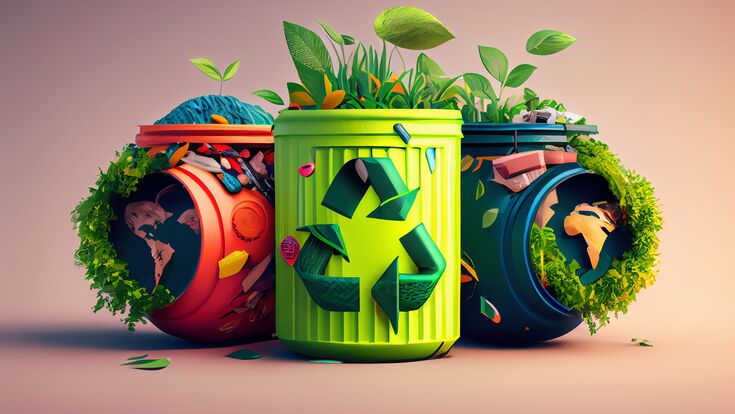Waste Management Strategies : CIWM review shows: Only 20% of UK waste policies from 2018 fully implemented

A review of the 2018 Resources and Waste Strategy, carried out by the Chartered Institution of Wastes Management (CIWM), the leading professional body for the resources and waste management sector, representing over 7,000 individuals in the UK, Ireland and overseas, has found that only 20% of the policies set out in the Strategy have been fully implemented, with a further 54% only partially implemented. As a result, work has yet to start on more than a quarter (26%) of the policies originally detailed more than six years ago.
Reasons given for this slow progress include frequent ministerial changes after 2018, preparing for the UK's exit from the European Union and responding to the Covid-19 pandemic.
Need for a new waste management strategy
CIWM points out that while the delivery of some aspects of the 2018 Resources and Waste Strategy, such as Extended Producer Responsibility (EPR) and consistent collections, must be prioritised, the world has moved on. This strategy is therefore out of date and incapable of delivering a zero waste economy capable of delivering substantial growth in UK GDP, increased employment and maximum resource efficiency. CIWM believes there is an urgent need for a new Resource Resilience Strategy that aims to deliver a circular economy and help the UK achieve net zero.
Commenting on the launch of the review, CIWM’s Director of Innovation and Technical Services, Lee Marshall, said: “CIWM members have undertaken a comprehensive review of the 2018 Resources and Waste Strategy and the findings confirm that progress on implementing its policies has been incredibly slow as many in the sector thought. The ambitious scale of the strategy was never matched by the resources made available within the Government to deliver it.
Whilst it is good to see that Defra (note from the editor: Defra is the Department for Environment, Food & Rural Affairs in the UK) has been slightly bolstered in recent years, the fact is that political indecision has left the original timelines meaningless in many cases. There is an urgent need to see certain policies delivered, including packaging EPR and Consistent Collections which will directly increase recycling rates, whilst digital waste tracking and carriers, brokers and dealers’ reforms will help regulators address waste crime and increase standards still further. Given the picture this review paints, it is time to produce a new Resource Resilience Strategy that will help deliver on the Government’s ambition of a zero-waste economy.”
Related article: Denmarks DRS for cans and bottles achieves 100 per cent circularity
Divert biowaste from landfills
Consistent Collections, which would see weekly food waste collections provided by the 50% of councils in England that don't already offer this service, is the outstanding policy from 2018 with the potential to have the biggest impact. According to CIWM, this would help all households to recycle more and reduce carbon emissions by reducing the amount of biodegradable waste entering the residual waste stream. In the UK, food waste represents about 30% of household residual waste. Despite the availability of separate collection schemes for biowaste in many areas, a significant portion still enters the residual waste stream due to improper sorting or lack of access to organic waste collection services.
It is estimated that carbon savings by reducing the amount of organic waste in the residual waste stream could be as high as 58 MtCO2 by 2035. The overall recycling rate in England could increase from the current 44% to around 60% and the cost-effective societal benefits are estimated to be around £3 billion by 2035.
The full CIWM review of the 2018 Resources and Waste Strategy is available here.



